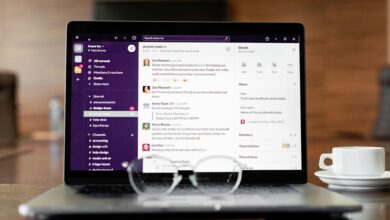Mastering Competency-Based Interview Questions: Your Ultimate Guide to Success

Table of Contents
Have you ever left an interview feeling like you didn’t get the chance to truly showcase your abilities? Competency-based interviews are designed specifically to reveal your real-world skills and experiences, yet 68% of candidates report feeling unprepared for these structured assessments. In this comprehensive guide, you’ll discover how to navigate the most challenging competency-based interview questions with confidence and provide compelling answers that highlight your professional strengths.
What Are Competency-Based Interview Questions?
Competency-based interview questions (also known as behavioral or situational questions) require you to draw on specific examples from your past experiences to demonstrate key skills and competencies. Unlike traditional interviews that focus on qualifications and hypothetical scenarios, competency-based questions seek evidence of how you’ve actually performed in relevant situations.
These questions typically follow the format: “Tell me about a time when you…” or “Give an example of how you handled…” The interviewer is looking for concrete examples that illustrate your capabilities in action, not theoretical responses.
The STAR Method: Your Framework for Compelling Answers

Before diving into specific questions, it’s essential to understand the STAR method—the gold standard for structuring competency-based interview responses:
- Situation: Briefly describe the context or background
- Task: Explain what was required of you
- Action: Detail the specific steps you took
- Result: Share the outcomes and what you learned
Following this structure ensures your answers are concise, relevant, and clearly demonstrate your competencies.
Top 10 Competency-Based Interview Questions and Effective Answers
1. Leadership Competency: “Describe a situation where you led a team through a difficult challenge.”
Effective Answer:
“When our company implemented a new CRM system last year, I was tasked with leading a team of six through the transition. The challenge was significant as team members had varying levels of technical proficiency, and we needed to maintain client service standards during the implementation.
I created a stepped training program tailored to different learning styles, scheduled one-on-one sessions with team members who needed extra support, and developed contingency protocols to prevent service disruptions. I also established daily check-ins to address emerging issues.
As a result, we completed the transition two weeks ahead of schedule with 100% team proficiency in the new system. Client satisfaction metrics remained stable throughout, and my approach was later adopted as the company-wide standard for technical transitions.”
2. Problem-Solving Competency: “Tell me about a time when you had to solve a complex problem with limited information.”
Effective Answer:
“While managing a marketing campaign, our analytics platform crashed three days before a major client presentation, leaving us without access to performance data. The client expected detailed ROI metrics, and postponing wasn’t an option.
I quickly identified alternative data sources, including Google Analytics, social media insights, and our CRM records. I developed a manual tracking system to collate these disparate metrics and worked with our IT team to verify the integrity of our compiled data.
We delivered a comprehensive presentation that actually provided deeper insights than our standard reports. The client was impressed with our thoroughness, and we secured a 20% budget increase for the next quarter. This experience prompted us to diversify our analytics tools to prevent similar vulnerabilities.”
3. Adaptability Competency: “Share an example of how you adjusted to a significant change at work.”
Effective Answer:
“When our startup was acquired by a larger corporation, my role shifted from being the sole content strategist to joining an established team with different methodologies. Instead of directing all content decisions, I now needed to collaborate within a structured approval process.
I proactively scheduled one-on-one meetings with each team member to understand their expertise and workflows. I identified gaps between our previous strategy and the new company’s approach, then created a transition document that preserved our most successful elements while integrating with the parent company’s systems.
This approach allowed me to preserve 80% of our high-performing content initiatives while successfully integrating into the new corporate structure. My transition document was later used as a template for other acquired teams, and I was promoted to Senior Content Strategist within six months.”
4. Communication Competency: “Give an example of when you had to explain a complex concept to someone unfamiliar with the subject.”
5. Teamwork Competency: “Describe a situation where you had to work effectively with people from different backgrounds or departments.”
6. Conflict Resolution Competency: “Tell me about a time when you resolved a conflict within your team.”
7. Time Management Competency: “Share an example of how you handled multiple pressing deadlines simultaneously.”
8. Initiative Competency: “Describe a situation where you identified an opportunity and took action to capitalize on it.”
9. Customer Service Competency: “Tell me about a time when you exceeded a customer’s expectations.”
10. Decision-Making Competency: “Give an example of a difficult decision you had to make with significant consequences.”
Common Mistakes to Avoid in Competency-Based Interviews

When preparing for your interview, be careful to avoid these frequent pitfalls:
- Providing generic answers without specific examples
- Focusing too much on the situation and not enough on your actions and results
- Taking credit for team accomplishments without clarifying your specific contribution
- Choosing examples that don’t highlight relevant competencies for the role
- Failing to reflect on lessons learned from challenging situations
How to Prepare for Competency-Based Interviews
1. Research Key Competencies for the Role
Review the job description carefully and identify 5-7 core competencies likely to be assessed. Common competencies include leadership, teamwork, problem-solving, communication, adaptability, and customer focus.
2. Build Your Example Bank
For each identified competency, prepare 2-3 detailed examples from your professional experience that clearly demonstrate your capabilities in that area. Create brief notes using the STAR framework for each example.
3. Practice Your Delivery
Rehearse your responses aloud, timing yourself to keep answers between 2-3 minutes. Ask a trusted colleague or friend to conduct a mock interview and provide feedback on your clarity and impact.
Final Thoughts: Bringing Authenticity to Competency-Based Interviews

While structure and preparation are essential, authenticity remains your greatest asset in competency-based interviews. Your real experiences, complete with challenges and lessons learned, create compelling narratives that showcase your true capabilities.
By understanding the core competencies required for your target role and thoughtfully preparing relevant examples from your professional journey, you position yourself as a candidate with proven abilities—not just promising potential.
What competency do you find most challenging to demonstrate in interviews? Share your thoughts in the comments below, or reach out for personalized interview preparation support to take your interview performance to the next level.



